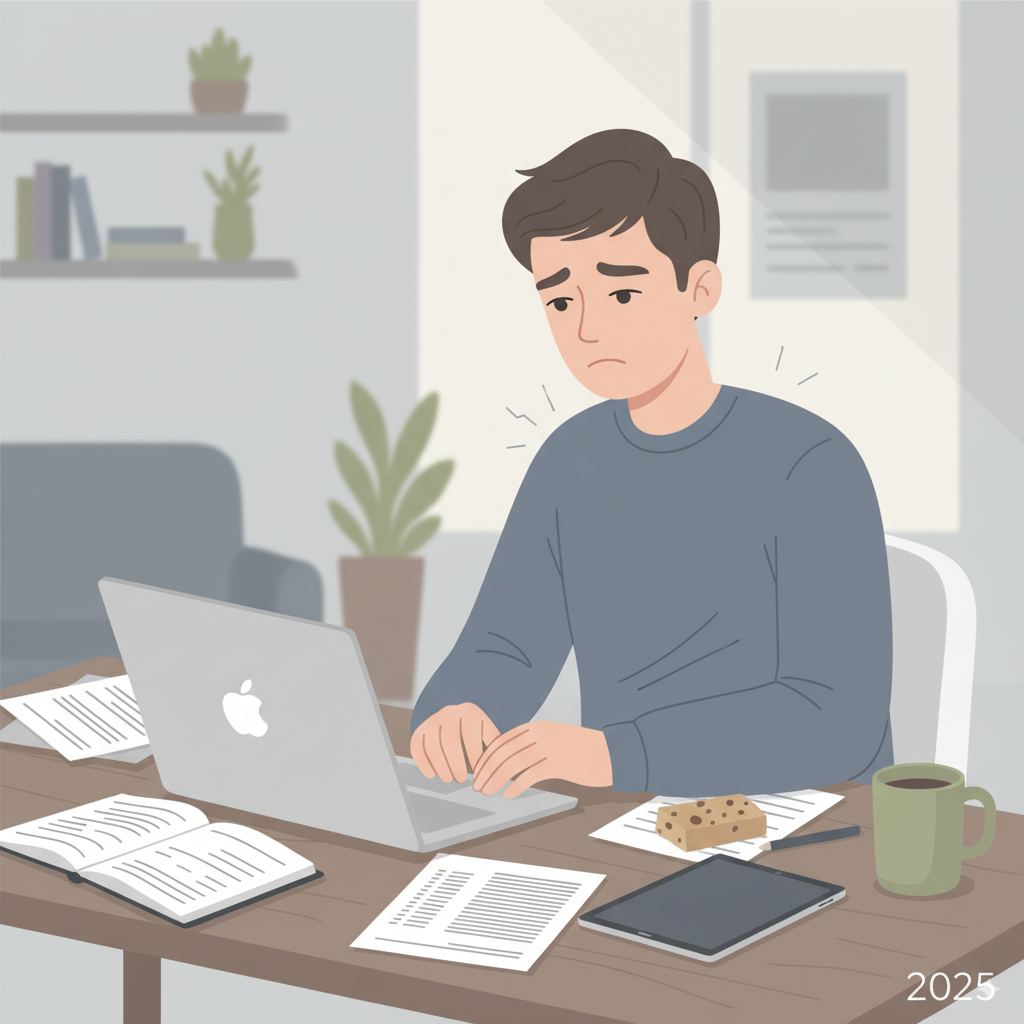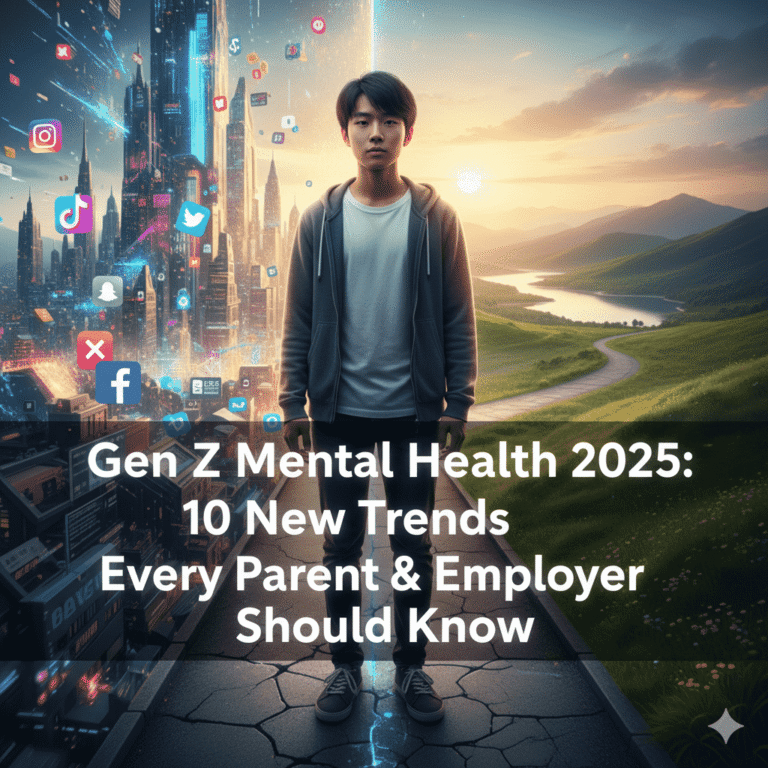
When most people hear the word “depression,” they imagine someone unable to get out of bed, constantly crying, or isolating from the world. While this is true for some, not everyone with depression fits that image. Many individuals manage to maintain their careers, family responsibilities, and social lives, all while hiding a deep internal struggle. This is called high functioning depression.
Unlike clinical depression, high functioning depression symptoms are subtle, making them harder to identify. Because the signs are often masked by productivity and apparent success, millions of people suffer in silence. Recognizing the warning signs of high functioning depression is essential for protecting mental well-being and encouraging those affected to seek help.
Below are the 10 warning signs of high functioning depression you should not ignore in 2025.
1. Constant Exhaustion Despite Sleep
One of the most overlooked high functioning depression symptoms is unshakable exhaustion. People sleep for 7–8 hours but still feel drained. This isn’t normal tiredness; it’s mental fatigue that affects focus, motivation, and energy throughout the day.
This level of fatigue is often dismissed as stress or overwork, but in reality, it can be a silent symptom of depression.
2. Overachievement and Perfectionism
A key sign of living with high functioning depression is overachievement. Many people distract themselves from negative emotions by pushing harder at work or school. They appear highly productive, but inside they feel empty.
This form of depression but functioning well is deceptive—on the surface, they are successful, but emotionally they’re struggling.

3. Irritability and Mood Swings
People often think depression equals sadness, but signs of hidden depression also include irritability. Someone may snap over small issues, feel restless, or struggle to manage emotions. Since irritability resembles stress or burnout, it is rarely recognized as depression.
4. Loss of Interest in Joyful Activities
Another red flag is losing interest in things once loved. This could be hobbies, sports, or even family time. On the outside, they might still participate, but deep inside there’s no real joy.
This lack of fulfillment is common in high functioning depression and leads to emotional detachment from relationships.
5. Strained Relationships
Even while maintaining social appearances, people with high functioning depression symptoms may feel distant from loved ones. They often cancel plans, avoid deep conversations, and keep struggles private. Over time, this emotional distance can create isolation and loneliness.
6. Negative Self-Talk
Many who are living with high functioning depression battle an inner critic. They constantly think, “I’m not good enough” or “I don’t deserve success.”
This pattern of negative self-talk worsens the cycle, leading to more stress and reduced self-esteem.
7. Physical Symptoms Without Cause
Depression is not only mental. It often causes silent symptoms of depression such as headaches, body aches, digestive issues, and sleep problems.
Doctors may not find any clear medical explanation. That’s because the depression and anxiety connection plays a big role in triggering these physical symptoms.
8. Using Humor as a Mask
Some of the most cheerful, funny people are secretly struggling. Humor becomes their way to hide the pain. Friends see them as the “life of the party,” but behind the laughter, they’re battling depression but functioning well.
9. Trouble Concentrating
A person with high functioning depression may still meet deadlines, but concentration issues become noticeable. They forget details, lose focus in conversations, and make small mistakes.
This affects productivity and increases frustration, which can deepen the depression cycle.

10. Feeling Empty Despite Success
Perhaps the strongest warning sign of high functioning depression is emptiness despite achievements. Promotions, new homes, or relationship milestones don’t bring happiness. Instead, individuals feel disconnected from life, as though nothing matters.
This difference—appearing fine but feeling empty—is a core marker of high functioning depression symptoms.
Clinical Depression vs High Functioning Depression
It’s important to highlight clinical depression vs high functioning depression.
- Clinical depression often makes daily tasks impossible.
- High functioning depression, on the other hand, allows people to function outwardly but suffer internally.
Both are serious conditions requiring attention. The challenge with high functioning depression is that it’s invisible to most people, which makes early intervention harder.
Coping With Depression Daily
If you suspect you or someone you know is living with high functioning depression, there are practical steps for coping with depression daily:
- Maintain a consistent sleep routine.
- Exercise regularly, even gentle movement.
- Practice mindfulness and meditation.
- Write thoughts in a journal to track mood.
- Avoid alcohol or substance use as coping mechanisms.
- Stay connected with trusted friends and family.
These lifestyle changes help, but professional support is often necessary.
Treatment and Support Options
Ignoring the warning signs of high functioning depression can lead to worsening mental health. Seeking support is not a weakness—it’s a step toward healing.
Depression help and treatment options include:
- Therapy: Cognitive Behavioral Therapy (CBT) or talk therapy.
- Medication: Prescribed by mental health professionals when necessary.
- Support groups: Sharing experiences helps reduce isolation.
- Digital tools: In 2025, apps for therapy, mindfulness, and self-tracking are widely available.
Remember, recognizing the signs of hidden depression early can prevent severe outcomes.
Breaking Stigma and Raising Awareness
In 2025, conversations about mental health are louder than ever, but stigma remains. Increasing mental health awareness globally is vital. The myth that success equals happiness must be challenged. Productivity should not hide pain.
By educating ourselves about high functioning depression symptoms and sharing this knowledge, we create a culture where people feel safe to seek help.

Conclusion
High functioning depression is dangerous because it hides behind success, humor, and daily routines. From constant exhaustion to feeling empty despite achievements, these subtle signs can easily go unnoticed.
If you or someone you love shows these warning signs of high functioning depression, don’t ignore them. Seeking support can transform lives.
Remember: even when someone seems like they are depression but functioning well, they may still be struggling silently. By increasing mental health awareness and encouraging open conversations, we can build a world where no one suffers in silence.
What are the hidden symptoms of high functioning depression?
Persistent fatigue, irritability, loss of interest, negative self-talk, and emotional emptiness are common hidden symptoms.
How is high functioning depression different from clinical depression?
Unlike clinical depression, people with high functioning depression appear outwardly fine but experience internal struggles.
How can I cope with high functioning depression?
Therapy, mindfulness, exercise, healthy lifestyle habits, and support groups are effective coping strategies.
Is high functioning depression real and serious?
Yes, it is a serious mental health condition and should be addressed early to prevent worsening symptoms.


